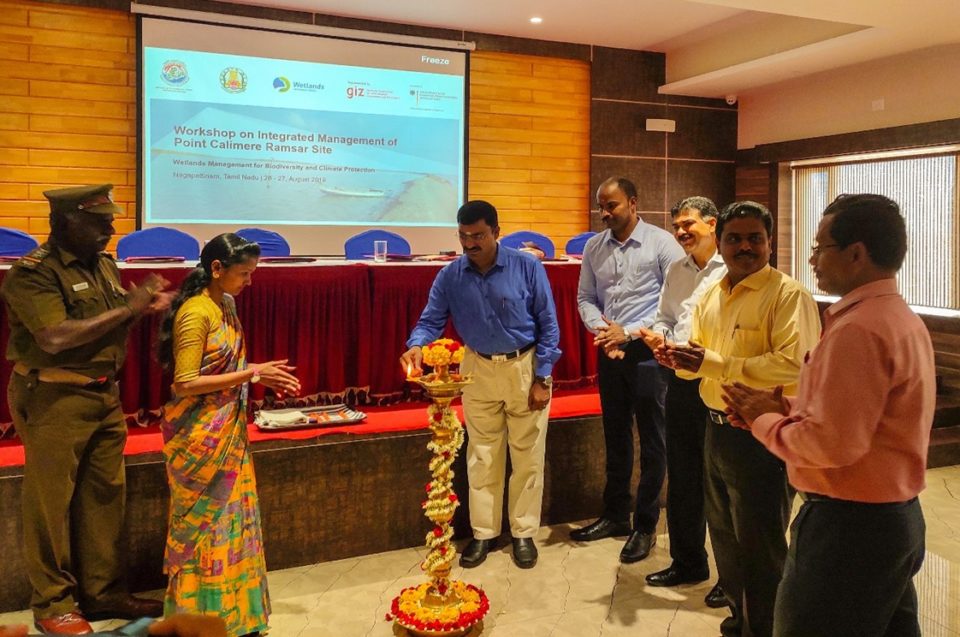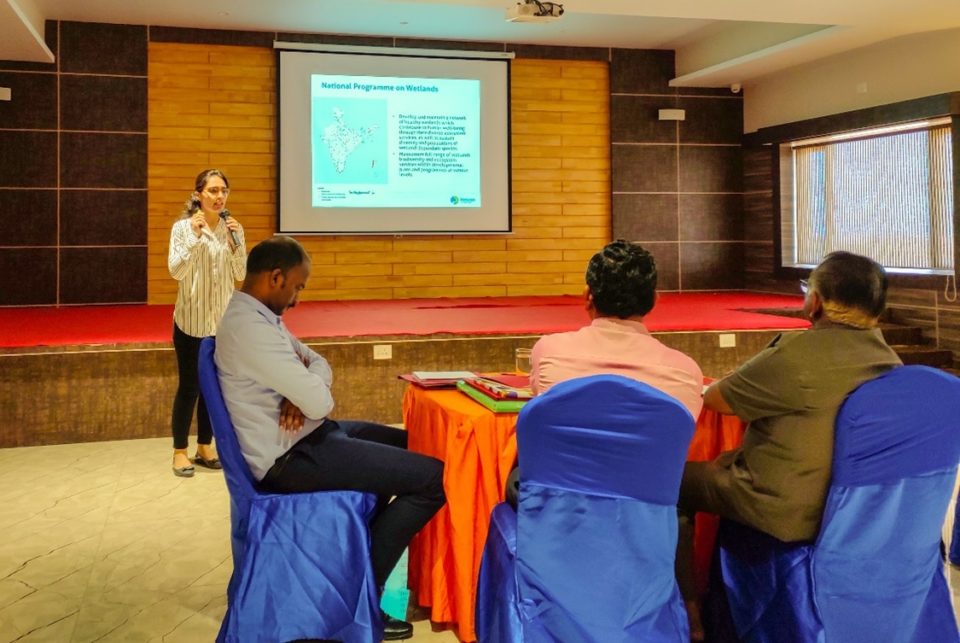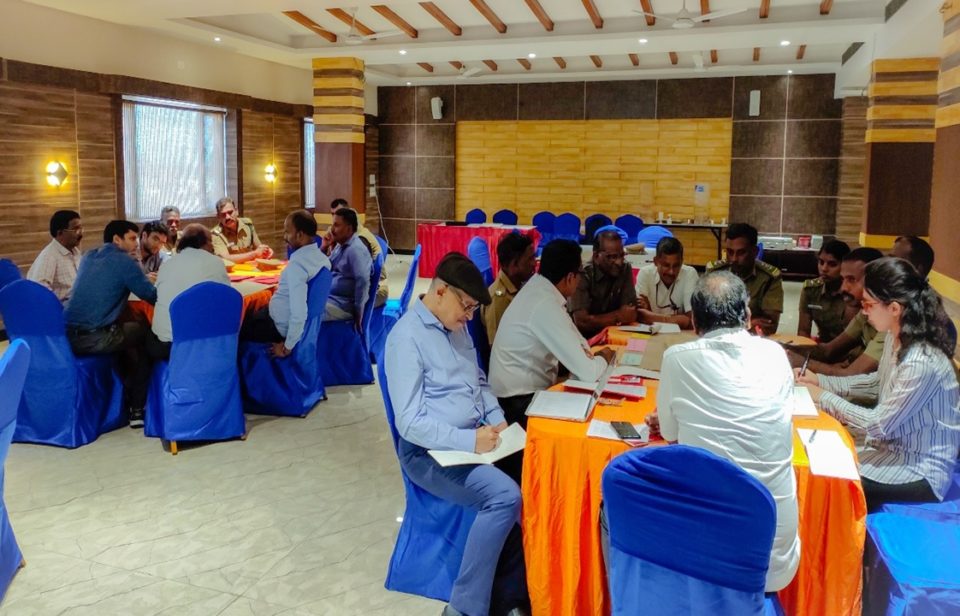
Integrated management planning of Point Calimere, Ramsar site got underway at Velankanni, Nagapattinam
-
Capacity development
-
Integrated management planning
-
Integrating wetlands in water management
-
Rivers and lakes
-
Wetland values, status and trends

Geographic landmark and iconic wetland complex of Tamil Nadu, Point Calimere is facing severe ecological pressures including intermittent freshwater flows, hyper salination, degrading mangrove health and loss of biodiversity. Due to these adverse drivers, Point Calimere has been identified as a site for operationalizing an integrated management planning under the IKI Wetlands project to maintain its biodiversity, secure ecosystem services and adapt to climate risks.
GIZ in partnership with Government of Tamil Nadu and Wetlands International South Asia organized a workshop in the heritage city of Velankanni on August 26-27, 2019 to kick off the integrated management process. The workshop was attended by over 40 government officials from various departments along with local scientific experts. The District Collector Nagapattinam, Chairman District Wetland Committee inaugurated the workshop while recognizing the ecological sensitivity of the wetland complex, recommended that the management of Point Calimere should be scientifically sound. Conservator of Forest, Thanjavur district highlighted the importance and historical significance of Point Calimere and called for a participatory management approach. Protected area approach forms the basis of current management regime of Point Calimere as discussed by Wildlife warden, Nagapattinam and DFO, Thiruvarur. Expert group presented high concerns over the increasing salinity and identified it as a key handle for wetland management. Local community and Panchayati Raj institutions were identified as crucial stakeholders to ensure wetland conservation. Diagnostic approach for setting overall management goal and objectives while taking into account learnings from other wetlands was endorsed by all.


Workshop was designed to identify and highlight crucial elements for management of wetland features through extensive group discussions and expert inputs. Hydrology was identified as a vital lever which influences and connects all other wetland features in big way and it was concluded that sustaining hydrology of Point Calimere should be the priority for wetland managers. Prof. Kathiresan and Dr Selvam were of the opinion that biodiversity conservation should be mainstreamed into institutional mechanisms while keeping science-based community centred management in the frontline as was the case in Pichavaram.

Dr. Balachandran opined that management interventions to sustain intertidal mudflats crucial for migratory birds were the need of the hour. Furthermore, the stakeholders influencing management of Point Calimere were mapped according to their influential power and interest in wetland management so as to identify the stakeholders whose interests can be enhanced while establishing common grounds. The workshop concluded with a capacity needs assessment that would lead to the development of an overall capacity building strategy ensuring integrated management of Point Calimere wetland complex.
